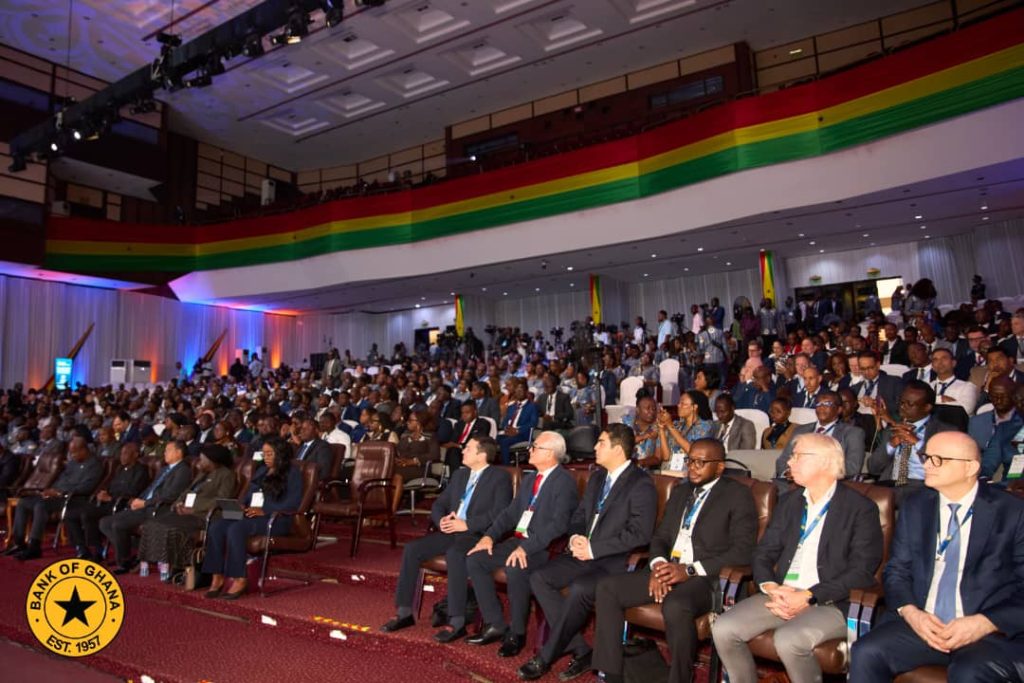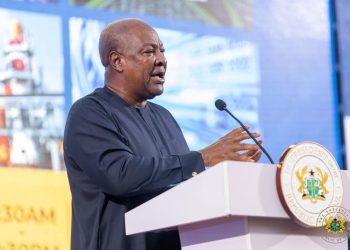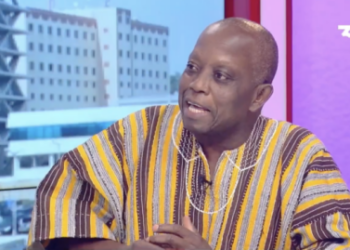Ghana introduced the Cedi not merely as a medium of exchange but as “a declaration of independence, our identity, and the capacity of our state.”
Sixty years on, the Cedi has anchored monetary policy, absorbed economic shocks, and become a powerful symbol of the resilience of the Ghanaian economy.
President John Dramani Mahama, speaking at the opening of the Cedi@60 International Conference in Accra, emphasised that the 60th anniversary is “more than a celebration; it is a moment for analysis and a chance to consider what our currency stands for, how it has developed, and how it must be fortified for the years ahead.”
The two-day conference, jointly organised by the Bank of Ghana (BoG) and Currency Research, brought together policymakers, innovators, central bankers, academics, and practitioners from 42 countries to deliberate on currency management, monetary governance, and digital finance in a rapidly evolving global monetary landscape.
Macroeconomic discipline
President Mahama praised the Bank of Ghana and its partners for convening a “distinguished community” to discuss the future of money, noting that “the future of money is inextricably linked to the future of national development, institutional credibility, and global economic integration.”
Reflecting on Ghana’s economic progress, he highlighted the role of macroeconomic stabilisation measures such as fiscal consolidation, improved forex liquidity management, and enhanced reserve buffers in restoring confidence and maintaining exchange rate stability.
“The Cedi at 60 is a reminder of the strength of our institutions and the importance of sound economic stewardship,” he said, noting that Ghana’s sovereign rating was recently upgraded by S&P from CCC+/C to B-/B with a stable outlook, which he described as “an affirmation that our fundamentals are strengthening and that we are on a clear path of recovery,” Mahama said.
Safeguarding BoG’s independence
The President reiterated the government’s commitment to protecting the independence of BoG, calling it “an economic necessity” for anchoring inflation expectations, maintaining exchange rate stability, and enhancing investor confidence.
“A strong and autonomous central bank is essential for long-term policy credibility,” he said.
He urged the Bank to intensify public education on three fronts: the importance of using the national currency, proper currency handling practices, and financial literacy.

“An informed citizenry is better able to prevent fraud, demand accountability, and bolster the financial ecosystem,” he added, emphasising that public education must reach schools, markets, transport unions, digital platforms, and rural communities.
Cedi gains recognition among Ghanaians
President Mahama lauded the Governor of BoG, Dr Johnson Pandit Kwesi Asiama, for the prudent management of the Cedi.
He also commended the Central Bank and Finance Ministry for the improved performance of the Cedi against other major international currencies.
“Over the past 10 months, Ghanaians have increasingly quoted prices in Cedis rather than dollars,” he noted, highlighting that even house rents and car purchases are now being transacted in the national currency.
“A lot of respect has returned to our currency,” he said, urging continued vigilance to maintain the stability of the Cedi,” Mahama stressed.
Modern currency management for a changing world
President Mahama underscored the relevance of the Pan-African Payment and Settlement System under the African Continental Free Trade Area, calling it a “catalyst for seamless transactions across the continent.”
He urged Ghanaians to commit themselves to shaping a currency and an economy that reflects the hopes and aspirations of the people.
BoG Governor calls for collective responsibility
Dr. Johnson Pandit Asiama, Governor of the Bank of Ghana, echoed the President’s remarks, emphasising that protecting the Cedi is a shared responsibility that transcends a single institution. “The Cedi belongs to all of us.
It carries our confidence, our effort, and our belief in the future of this country,” he said.
Speaking at the opening session of the conference, Dr. Asiama highlighted efforts to re-anchor the Cedi amid pressures toward currency substitution and dollarisation, which he described as threats to economic sovereignty.
He also noted ongoing initiatives in payments modernisation and the e-Cedi as part of the central bank’s commitment to secure and interoperable forms of value, aligned with Ghana’s realities and global best practices.
Engaging young Ghanaians in the future of money
The governor stressed the importance of fostering trust in monetary institutions among young Ghanaians, whose expectations for transparency, convenience, and accountability are rising.
“Part of our responsibility – as policymakers, as technicians, and as leaders – is to ensure that the Cedi, however it is accessed, continues to serve their aspirations,” he said.











